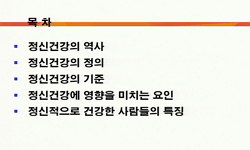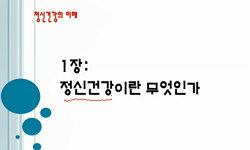This paper deals with the scopic enactment and negotiation of the scalar dynamics of gendered nationalism and their implication for women’s third prison in the Egyptian post-independent setting. Women’s Third prison is a critical category referenc...
http://chineseinput.net/에서 pinyin(병음)방식으로 중국어를 변환할 수 있습니다.
변환된 중국어를 복사하여 사용하시면 됩니다.
- 中文 을 입력하시려면 zhongwen을 입력하시고 space를누르시면됩니다.
- 北京 을 입력하시려면 beijing을 입력하시고 space를 누르시면 됩니다.
https://www.riss.kr/link?id=A108197611
-
저자
Riham Abdel Maksoud Debian (Institute of Applied Linguistics and Translation Faculty of Arts, Alexandria University)

- 발행기관
- 학술지명
- 권호사항
-
발행연도
2022
-
작성언어
English
- 주제어
-
등재정보
KCI등재
-
자료형태
학술저널
-
수록면
75-106(32쪽)
-
KCI 피인용횟수
0
- 제공처
-
0
상세조회 -
0
다운로드
부가정보
다국어 초록 (Multilingual Abstract)
This paper deals with the scopic enactment and negotiation of the scalar dynamics of gendered nationalism and their implication for women’s third prison in the Egyptian post-independent setting. Women’s Third prison is a critical category referencing Middle Eastern women’s intersectional positioning between kinship feudally-inflected patriarchy and political familism with the latter constituting the panacea and pinnacle for the imagination and gender imaging of women placed in the national body-politics. The paper tackles the questions of the gender politics of nationalism and their scopic drive underpinning the cinematic adaptation of the gender story of the nation from text to screen along two historical contexts—the period of developmental and global modernity. Adopting a multicultural feminist approach, the paper examines three cinematic adaptations of two novels and a play. These are Idris’ AlʿAyb (Disgrace 1962), al-Zayat’s Al-Bab al-Maftouh (Open Door 1960) and al-Asaal’s Segn al-Nisa (Women’s Prison 1882). The paper approaches the adaptations - Idris and Khalifa’s AlʿAyb (Disgrace 1967), Youssef Issa and Latifa al-Zayat’s al-Bab al-Maftouh (Open Door 1963), Abu Zikri and Naoum’s Segn al-Nisa (Women’s Prison 2014) - through both McClintock’s framework on the gender politics of nationalism (1997), Hucheon’s notion of “the context of creation … and reception” (Hutcheon 2006, 15) and Mulvey’s take on the visual pleasure of narrative cinema. The paper capitalizes on the medially induced turn in Translation Studies (Littau 2011) with its attention to context and media as parameters and venues for constructing the self-image of national cultural identity. The paper argues for the following: first, the significance of the context of creation and reception as a regulating and shaping parameter for the politics of adaption - conceived in repertoire with the narrative reservoir and scopic schemes shaping the horizon of expectation of the target audience; second, the technologies of violence of gendered nationalism and its scopic enactment of the scalar dynamics of social hierarchy through the visual narrativization of the gender story of Western styled nation-state. Third, the visual narrativization of national cinematic adaptation administers a transmedia story-telling within the scopic regime of modernity and global modernity. Fourth, Western styled nationalism negotiated the inherent paradox of modern nation-state through the social-contractual relation of women to national body politics - visually narrativized through the Egyptian styled pleasure of national cinema fetishistic scopophilia. Ultimately, the paper argues for the sustainable persistence of women's third prison, whose metamorphosing visual narrativization tolls the knell for the nation-state's hyphen putting the current social order in jeopardy with no redemption for a viable alternative.
참고문헌 (Reference)
1 Harding, Sue-Ann, "“How do I apply narrative theory?”: Socio-narrative theory in translation studies" 24 (24): 286-309, 2012
2 Barakat, Henry, "al-Bab al Maftouh(Open Door)" GOEC 1963
3 Al-Zayat, Latifa, "al-Bab al Maftouh(Open Door)" Dar Karma 1960
4 Joseph, Suad, "Women and Citizenship" Oxford Scholarship 2005
5 Yuval-Davis, Nira, "Woman, nation, state" Macmillan 1989
6 Mulvey, Laura, "Visual and Other Pleasures" Macmillan 1989
7 Prochazka, Theodore, "Treatment of Theme and Characterisation in the Works of Yusuf Idris" University of London 1972
8 Littau, Karin, "Translation in the Age of Postmodern Production : From text to Intertext to Hypertexts" 33 (33): 81-96, 1997
9 Littau, Karin, "Translation and the Materialities of Communication" 9 : 82-96, 2016
10 Baker, Mona, "Translation and conflict: A narrative account" Routledge 2006
1 Harding, Sue-Ann, "“How do I apply narrative theory?”: Socio-narrative theory in translation studies" 24 (24): 286-309, 2012
2 Barakat, Henry, "al-Bab al Maftouh(Open Door)" GOEC 1963
3 Al-Zayat, Latifa, "al-Bab al Maftouh(Open Door)" Dar Karma 1960
4 Joseph, Suad, "Women and Citizenship" Oxford Scholarship 2005
5 Yuval-Davis, Nira, "Woman, nation, state" Macmillan 1989
6 Mulvey, Laura, "Visual and Other Pleasures" Macmillan 1989
7 Prochazka, Theodore, "Treatment of Theme and Characterisation in the Works of Yusuf Idris" University of London 1972
8 Littau, Karin, "Translation in the Age of Postmodern Production : From text to Intertext to Hypertexts" 33 (33): 81-96, 1997
9 Littau, Karin, "Translation and the Materialities of Communication" 9 : 82-96, 2016
10 Baker, Mona, "Translation and conflict: A narrative account" Routledge 2006
11 Krebs, Katja, ed, "Translation and Adaptation in Theatre and Film" Routledge 2014
12 Al-Kardousi, Mahmoud, "The State and Cinema and 38 years of Boycot"
13 Al-Assal, Fathiya, "Segn al-Nisa (Women Prison)" GEBCO 1982
14 Amireh, Amal, "Remembering Latifa al-Zayyat" 2 (2): 1996
15 Desouky, Ibrahim, "Public Sector Cinema. Political and Social Transformations" General Authority for Cultural Palaces 2014
16 Metz, Christian, "Psychoanalysis and cinema : the imaginary signifier" MacMillan 1982
17 Suad Joseph, "Political Familism in Lebanon" SAGE Publications 636 (636): 150-163, 2011
18 Cross, C. Lindley, "Perspectives Behind Translating House of Flesh by Yusuf Idris"
19 Jackobson, Roman, "On Translation" 232-239, 1959
20 Thomas, Dominic, "Not on Any Map: Essays on Postcoloniality and Cultural Nationalism" University of Exterior Press 115-134, 1997
21 Harris, Duchess, "Multicultural Feminism Transforming Democracy" 9 : 224-234, 2000
22 Appadurai, Arjun, "Modernity at large : cultural dimensions of globalization" University of Minnesota Press 1996
23 Littau, Karin, "Media, Mythology, and Morphogensis: Aliens" 17 (17): 19-36, 2011
24 Littau, Karin, "Media Event in the Global Age" Routledge 76-92, 2009
25 Kellner, Douglas, "Jean Baudrillard : From Marxism to Post modernism and Beyond" Stanford University Press 1989
26 McClintock, Anne, "Imperial Leather : Race, Gender, and Sexuality in the Colonial Conquest" Routledge 1995
27 Fishere, Ezzedine C., "How Yusuf Idris’s Stories Upended Respectability Politics in Egypt"
28 Laclau, Ernesto, "Hegemony and Socialist Strategy. Towards a Radical Democratic Politics" Verso 1985
29 Simon, Sherry, "Gender in translation : cultural identity and the politics of transmission" Routledge 1996
30 Debian, Riham, "From MiratiMudirAamTo Taymour waShafiqai:Transposing the Gender Story and the Gendering of National Imagery" Helwan University Press 2018
31 Littau, Karin, "First Steps Towards a Media History of Translation" 4 : 261-281, 2011
32 McClintock, Anne, "Family Feuds : Gender, Nationalism and the Family" 44 : 61-80, 1993
33 Jay, Martin, "Downcast Eyes" University of California Press 381-434, 1993
34 Jørgensen, Marianne, "Discourse Analysis as Theory and Method" Sage Publications Ltd 2002
35 Abou-Zikri, Kamla, "Dir. Segn al-Nisa (Women Prison)" al-Adl Production Group 2014
36 Sharkawy, Galal, "Dir. AlʿAyb (Disgrace)" GEOC 1967
37 Spivak, Gayatri, "Dangerous Liaisons:Gender, Nation, and Postcolonial Perspectives" University of Minnesota 89-112, 1996
38 McClintock, Anne, "Dangerous Liaisons: Gender, Nation, and Postcolonial Perspectives" University of Minnesota 89-112, 1997
39 Buckland, Warren, "Conversation with Christian Metz : Selected Interviews on Film Theory(1970-1991)" Amsterdam University Press 2017
40 Littau, Karin, "Cinemacity in Media History" Edinburgh University Press 2013
41 Tröhler, Margrit, "Christian Metz and the Codes of Cinema: Film Semiology and Beyond" Amsterdam University Press 2018
42 Idris, Yusuf, "AlʿAyb(Disgrace)" Maktabat Masr 1988
43 Hutcheon, Linda, "A Theory of Adaptation" Routledge 2006
동일학술지(권/호) 다른 논문
-
The Dynamics of Supply-Side Factors in the Arab Countries: 1991-2019
- 부산외국어대학교 지중해지역원
- 노다솔
- 2022
- KCI등재
-
- 부산외국어대학교 지중해지역원
- Maria Victoria Curto Hernandez
- 2022
- KCI등재
-
The Circular Model of Existence Reflected on Writings of the Akbarian Sufis in the Ottoman Empire
- 부산외국어대학교 지중해지역원
- Kotoko Madono
- 2022
- KCI등재
-
Tatar Slaves in Late Fourteenth Century Florence
- 부산외국어대학교 지중해지역원
- 남종국
- 2022
- KCI등재
분석정보
인용정보 인용지수 설명보기
학술지 이력
| 연월일 | 이력구분 | 이력상세 | 등재구분 |
|---|---|---|---|
| 2027 | 평가예정 | 재인증평가 신청대상 (재인증) | |
| 2021-01-01 | 평가 | 등재학술지 유지 (재인증) |  |
| 2018-01-01 | 평가 | 등재학술지 유지 (등재유지) |  |
| 2015-01-01 | 평가 | 등재학술지 선정 (계속평가) |  |
| 2013-01-01 | 평가 | 등재후보학술지 유지 (기타) |  |
| 2011-01-01 | 평가 | 등재후보학술지 선정 (신규평가) |  |
| 2008-04-17 | 학회명변경 | 한글명 : 지중해연구소 -> 지중해지역원영문명 : Institute for Mediterranean Studies -> 상동 |
학술지 인용정보
| 기준연도 | WOS-KCI 통합IF(2년) | KCIF(2년) | KCIF(3년) |
|---|---|---|---|
| 2016 | 0.13 | 0.13 | 0.11 |
| KCIF(4년) | KCIF(5년) | 중심성지수(3년) | 즉시성지수 |
| 0.08 | 0.07 | 0.565 | 0 |




 RISS
RISS KISS
KISS






